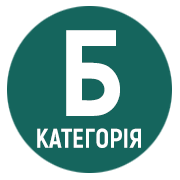CODE OF ROBINSONADE IN THE STORY BY L. CHERNOV “PROFESSOR WILLIAM VOX’S ADVENTURES ON THE TSYPANGO ISLAND”
DOI:
https://doi.org/10.31494/2412-933X-2019-1-9-85-94Keywords:
Robinsonade, adventure genre, travelling, adventure protagonist.Abstract
The article presents the study’s results of the use of peculiarities of Defoe’s plot in Ukrainian literature. The object of the study is the adventure story by L. Chernov (Maloshyichenko). The nature of artistic modeling of images, development of motives, genre, which draw the writer’s work closer to the genre of the Robinsonade are considered. It has been cleared up that the typical for Robinsonade rescuing motives from the death during a shipwreck, motives of an isolated island and building on an island of cultural society in its miniature in the Ukrainian invariant are linked with the motives of confrontation with true and pseudo-true civilizational bases. Besides the plot analogies, the details in the text by L. Chernov are generously scattered, sending the reader to the sacred letter. It is elicited that in comparison with the English pretext, the plot of the Ukrainian Robinsonade is characterized by a sexual component, which is, in general, a distinctive feature of risky and adventurous narrative. It is emphasized that the life experiences of the natives of Tsipango are an expressive reminiscence on the classics of satire, on world history, in which Europeans traditionally appeared as guides for colonized peoples. The Ukrainian writer ironically shows how the ordinary life of the indigenes is aggravated and worsened in the result of their inclusion in the “benefits of universal culture”. In accordance with the canonical Robinsonade, the protagonist must escape and return to his world. In the artistic reception by L. Chernov minus-pattern is used: the natives expel a stranger from their world, but he returns with a group of other white people. With the arrival of “civilizators”, the natives have nowhere to escape from the absurd and terrible civilized world, in order to survive morally and physically. Leonid Chernov’s story can be described as a quasirobinsonade, because the myth reorganizes the typical elements of Robinsonade such as a positive experience of survival in poorly adapted conditions, the victory of cultural upbringing over animal instincts. However, in Chernov’s story a new vector is given – the spiritual degradation of a person in a technically equipped world. Despite the author’s genre definition, according to its structural features (division of parts and chapters, the presence in each division of a title, the panoramic image of reality, the slow narration) the story should be attributed to the genre of novels, but, taking into account its intertextuality and parability, boldly call the “roman a clef”. The writer built a text based on the competence of the reader, without which, the understanding of hidden content would be impossible. It is emphasized that L. Chernov’s story is a kind of transformation of Defoe’s discourse, however, with the apparent use of the well-known plot structure, the Ukrainian writer violates a completely different philosophical question: how to survive in a civilized environment. If Defoe’s novel is about the victory of man over his animal instincts outside of the civilization, Chernov’s work is about the demoralization of man in conditions of civilization.
References
Герасимчук В. Філософський роман ХХ століття. Специфіка тексту : монографія / В. Герасимчук. – Київ : ПАРАПАН, 2007. – 392 с.
Кулакевич Л. “Життя та дивовижні пригоди козака Миколи на безлюдному острові” Вал. Злотопольця та І. Федіва як національний інваріант робінзонади / Л.М. Кулакевич // Таїни художнього тексту (до проблеми поетики тексту): зб. наук. пр. – 2016. – Вип. 20. – С. 109–121.
Кулакевич Л. Споживацтво як код буття в романі Любка Дереша “Голова Якова” / Л. Кулакевич // Антропологические сдвиги переломных эпох и их отражение в литературе: сб. науч. ст. в 2 ч. / ГрГу им. Я. Купалы. – Гродно : ГрГУ, 2014. – Ч. 2. – С. 60–68.
Павличко С. Д. Дискурс модернізму в українській літературі: монографія / С. Д. Павличко. – Київ : Либідь, 1999. – 447 с.
Ушкалов Л. Хвильовий і К : зустріч з Європою (До дня народження письменника) / Л. Ушкалов ; Харківська обласна організація “Національна спілка письменників України”. – Режим доступу: http://kharkiv-nspu.org.ua/archives/3964.
Чернов Л. Пригоди професора Вільяма Вокса на острові Ципанго / Л. Чернов // Універсальний журнал. – 1929. – №01. – С. 6–22.
Unamuno М. Del sentimento tragico de la vida en los hombres y en pueblos / М. Unamuno // Sus mejores paginas. Edited by Philip Metzidakis. – New Jersey, 1966.






